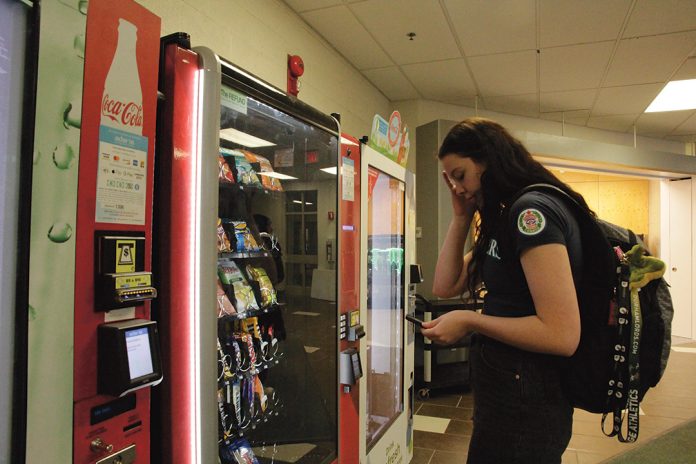Durham College students with severe allergies and dietary restrictions feel that the current food options on campus are limiting their ability to access safe and healthy meals.
Although the college through several food outlets offers, a variety of foods ranging from sushi to pizza, some students find it difficult to access meals that cater to their dietary needs.
According to the Government of Canada website the most common allergies are eggs, milk, soy, wheat, nuts, fish, sulphites, and mustard.
Mary McLaurin a student at DC says, “most of the things I see, you have to specifically ask, and even then, it could get contaminated.”
Cross contamination, which occurs when one food item comes into contact with another is a common issue in fast food restaurant according to the Healthline website. This is a cause for studnts with severe allergies as it can trigger an allergic reaction.
Other students have dietary restrictions, some vegan, vegetarian or pescatarian. Kai Lantigua another student at DC says they are missing a lot of good options for people who might have celiac or are vegan like me.”
Other students with dietary restrictions such as vegan, vegetarian or pescatarian feel that the college is missing good options for people with celiac or are vegan.
Kai Lantigua, another student at DC expressed her frustration saying that, “As a vegan on campus I can really only go to Tim Hortons for potato wedges.”
In response, Tim Hortons on campus has stated that there is a high risk of cross-contamination when it comes to allergies, but they are open to working on expanding their options for dietary restrictions.
Meghan Thomas, a supervisor at Tim Hortons on campus, said that they are limited to using the ingredients provided by Tim Hortons and any changes to their menu would have to come from higher levels. The college’s campus does not have any gluten-free options other than some pre-packaged labelled snacks such as chips and chocolate.
Lantigua says, “Everything here closes at four, students live here, and they want to eat.” She says the vending machines, which are available to everyone at any time, do not carry dinner options.
When students were asked what the school could do to make food more accessible at school, Lantigua said merging with food companies on campus would be beneficial.
“There is a market for health-conscious options and options for people with allergies,” Lantigua says.
McLaurin says the school could benefit from proper labeling and supplying students with more options catered to other allergies.
According to McLaurin, she had a friend that went through a process of un-clear labeling. The friend was unaware that the sauce on the poutine was a meat sauce.
Students continue to support the idea of a dedicated café for people with allergies, however there are easier improvements, according to McLaurin and Lantigua




